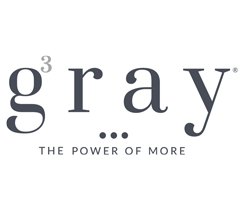Roush introduces two new propane trucks
Roush Performance, with support from the Propane Education & Research Council (PERC), introduced two alternative fuel vehicles available through Ford dealers in the United States and Canada.
The 2010 Roush propane-powered Ford F-250 and 2010 Roush propane-powered Ford E-250 achieve lower carbon and greenhouse gas emissions with propane as an engine fuel. On average, propane fleet vehicles reduce greenhouse gas emissions by 18 percent; create 20 percent less nitrous oxide; produce up to 60 percent less carbon monoxide; and fewer particulate emissions, compared to conventional gasoline. These vehicles follow the introduction of the Roush propane Ford F-150 in 2007.
In development for three years, the new low-carbon, propane-powered vehicles will meet strict Environmental Protection Agency and California Air Resources Board certifications, ensuring availability in all 50 states.
The introductions put Roush at the front of the “green-collar revolution” in Detroit, namely because of the decision to focus on propane, which is available now.
“By focusing on propane, ROUSH has been able to engineer green technology that is proven to reduce emissions now,” said Jack Roush, chairman of Roush Enterprises. “And the upside is that we are hoping to add nearly 100 new green-collar jobs.”
According to PERC CEO and President Roy Willis, propane is already the most widely used alternative fuel on roads today, powering 10 million vehicles around the world.
“Of all available alternative fuels,” said Willis, “propane offers the best mix of vehicle range, durability and performance. And the nationwide propane infrastructure can readily and affordably be expanded to provide easy access to refueling stations for fleets and the public.”
The Ford F-150, F-250 and E-250 are based on the 5.4L, three-valve Ford V-8 powertrain, each using a Roush liquid propane injection fuel system, including new fuel rail assembly and fuel injectors. The propane trucks sustain no loss of horsepower, torque or towing capacity as compared to a comparable gasoline-powered vehicle.
With F-250 deliveries anticipated to start in the third quarter, Roush will make this vehicle available in two forms. Customers can choose a complete Roush-assembled 2010 F-250 with a three-year/36,000-mile warranty or conversion kit that fits the 2009 and 2010 trucks. The additional cost for a Roush-assembled F-250 is $8,995, and the vehicle qualifies for a federal tax credit of up to $4,500. At the pump, propane prices per gallon are normally lower than gasoline or diesel, and with the proper infrastructure in place, a fleet user can qualify for a 50-cent tax credit per gallon consumed.
















